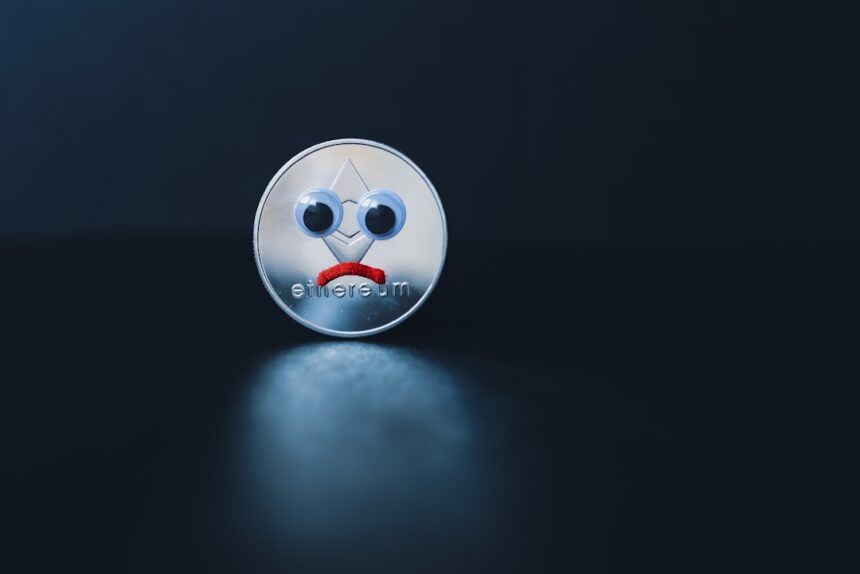Emotional suppression is a complex phenomenon that many individuals experience, often without even realizing it. You may find yourself pushing down feelings of sadness, anger, or anxiety, believing that expressing these emotions is a sign of weakness. This behavior can stem from various factors, including societal expectations, cultural norms, or personal experiences that have taught you to prioritize stoicism over vulnerability.
By understanding emotional suppression, you can begin to recognize its presence in your life and the ways it may be affecting your overall well-being. When you suppress your emotions, you might think you are protecting yourself or others from discomfort. However, this coping mechanism can lead to a disconnect between your internal emotional state and your outward behavior.
You may feel as though you are living in a constant state of tension, where your true feelings are buried beneath layers of denial. Acknowledging this disconnect is the first step toward understanding the impact of emotional suppression on your life and the lives of those around you.
Key Takeaways
- Emotional suppression can lead to long-term negative effects on physical and mental health, as well as relationships.
- Physical health implications of emotional suppression include increased risk of cardiovascular disease, weakened immune system, and chronic pain.
- Mental health implications of emotional suppression include anxiety, depression, and difficulty in regulating emotions.
- Emotional suppression can negatively impact relationships by leading to communication barriers, resentment, and lack of intimacy.
- Long-term effects of emotional suppression may include emotional numbness, low self-esteem, and difficulty in forming meaningful connections.
Physical Health Implications of Emotional Suppression
The physical health implications of emotional suppression are often overlooked, yet they can be profound. When you consistently bottle up your emotions, your body may respond with stress-related symptoms such as headaches, fatigue, or digestive issues. You might notice that your immune system becomes compromised, making you more susceptible to illnesses.
The connection between mind and body is undeniable; when you ignore your emotional needs, your physical health can suffer as a result. Moreover, chronic emotional suppression can lead to more severe health issues over time. You may find yourself grappling with conditions such as hypertension or heart disease, which can be exacerbated by prolonged stress and emotional turmoil.
It’s essential to recognize that your emotional well-being is intricately linked to your physical health. By addressing the emotions you suppress, you can take proactive steps toward improving both your mental and physical state.
Mental Health Implications of Emotional Suppression

The mental health implications of emotional suppression are equally significant. When you deny or ignore your feelings, you may experience increased anxiety and depression. You might feel overwhelmed by emotions that you refuse to acknowledge, leading to a cycle of negative thoughts and feelings that can be difficult to break.
This internal struggle can create a sense of isolation, as you may feel unable to share your true self with others. Additionally, emotional suppression can hinder your ability to cope with stress effectively. You may find yourself reacting to situations with heightened frustration or anger because the emotions you’ve been suppressing have built up over time.
This can create a volatile emotional landscape where small triggers lead to disproportionate reactions. Understanding the mental health implications of emotional suppression is crucial for developing healthier coping strategies and fostering a more balanced emotional life.
Impact on Relationships
| Relationship | Impact |
|---|---|
| Family | Increased bonding time |
| Friendships | More virtual communication |
| Romantic | Challenges in spending time together |
Emotional suppression doesn’t just affect you; it also has a significant impact on your relationships with others. When you hide your feelings, it can create barriers between you and those you care about. You might find it challenging to connect with friends or family members on a deeper level because you’re not being authentic about your emotions.
This lack of openness can lead to misunderstandings and distance in relationships, leaving both you and others feeling unfulfilled. Furthermore, when you suppress your emotions, you may inadvertently project those feelings onto others. For instance, if you’re feeling angry but refuse to acknowledge it, you might lash out at someone close to you without understanding why.
This can create a cycle of conflict and resentment in your relationships. By recognizing the impact of emotional suppression on your interactions with others, you can begin to foster healthier connections built on trust and open communication.
Long-Term Effects of Emotional Suppression
The long-term effects of emotional suppression can be far-reaching and detrimental to your overall quality of life. Over time, the habit of suppressing emotions can lead to chronic stress and burnout.
This emotional fatigue can create a sense of hopelessness and despair, making it difficult to envision a brighter future.
You might turn to unhealthy behaviors such as substance abuse or overeating as a way to numb the pain of unexpressed emotions.
These behaviors can create a vicious cycle that further entrenches you in emotional suppression rather than helping you break free from it. Understanding the long-term effects of this pattern is essential for making positive changes in your life.
Signs of Emotional Suppression

Recognizing the signs of emotional suppression is crucial for addressing the issue effectively. You may notice that you frequently feel numb or disconnected from your emotions, struggling to identify what you’re truly feeling in any given moment. This emotional detachment can manifest as an inability to express joy or sadness, leaving you feeling like an observer in your own life.
Other signs may include physical symptoms such as tension headaches or unexplained fatigue. You might find yourself experiencing mood swings or irritability without understanding the underlying cause. Additionally, if you often feel overwhelmed by minor stressors or find it challenging to engage in meaningful conversations about feelings, these could be indicators that you’re suppressing emotions rather than processing them healthily.
Coping Mechanisms for Dealing with Emotional Suppression
Developing healthy coping mechanisms is essential for addressing emotional suppression effectively. One approach is to practice mindfulness and self-awareness. By taking time each day to check in with yourself and acknowledge your feelings, you can begin to break the cycle of suppression.
Journaling can also be a powerful tool for exploring your emotions in a safe space, allowing you to articulate thoughts and feelings that may have been buried for too long. Another effective coping mechanism is engaging in physical activity. Exercise has been shown to release endorphins and improve mood, providing an outlet for pent-up emotions.
Whether it’s going for a walk, practicing yoga, or participating in team sports, finding a physical activity that resonates with you can help alleviate the stress associated with emotional suppression. Additionally, seeking support from friends or support groups can provide a sense of community and understanding as you navigate your emotional landscape.
Seeking Professional Help
If you’re struggling with emotional suppression and its effects on your life, seeking professional help can be a transformative step. A therapist or counselor can provide a safe space for you to explore your feelings without judgment. They can help you identify patterns of emotional suppression and work with you to develop healthier coping strategies tailored to your unique needs.
Therapy can also offer valuable insights into the root causes of your emotional suppression. By understanding the underlying beliefs or experiences that have led you to suppress your emotions, you can begin to challenge those narratives and create new ones that promote emotional expression and well-being. Remember that seeking help is not a sign of weakness; rather, it demonstrates strength and a commitment to personal growth.
Creating a Safe Space for Emotional Expression
Creating a safe space for emotional expression is vital for overcoming emotional suppression. This space can be physical or emotional; it could be as simple as designating a quiet corner in your home where you feel comfortable reflecting on your feelings or establishing regular check-ins with trusted friends or family members who encourage open dialogue about emotions. In this safe space, allow yourself the freedom to express whatever comes up without fear of judgment or criticism.
You might consider incorporating creative outlets such as art or music into this space as well; these forms of expression can provide an additional layer of release for suppressed emotions. By fostering an environment where emotions are welcomed and validated, you’ll be better equipped to confront and process what you’ve been holding inside.
Importance of Emotional Intelligence
Emotional intelligence plays a crucial role in navigating the complexities of emotional expression and suppression. By developing your emotional intelligence, you enhance your ability to recognize and understand both your own emotions and those of others. This awareness allows for more meaningful connections and healthier interactions in both personal and professional settings.
As you cultivate emotional intelligence, you’ll find it easier to articulate your feelings and respond empathetically to others’ emotions as well. This skill set not only benefits your relationships but also contributes positively to your mental health by reducing feelings of isolation and promoting a sense of belonging. Embracing emotional intelligence empowers you to break free from the constraints of emotional suppression and live more authentically.
Embracing Vulnerability and Authenticity
Embracing vulnerability and authenticity is perhaps one of the most liberating steps you can take in overcoming emotional suppression. Allowing yourself to be vulnerable means acknowledging that it’s okay not to have everything figured out; it’s okay to feel deeply and express those feelings openly. When you embrace vulnerability, you create opportunities for genuine connections with others who may also be struggling with their own emotions.
Authenticity goes hand-in-hand with vulnerability; by being true to yourself and expressing your emotions honestly, you invite others into a space where they feel safe doing the same. This mutual exchange fosters deeper relationships built on trust and understanding rather than fear and avoidance. Ultimately, embracing vulnerability allows you to reclaim your emotional landscape and live a life that is rich in connection, fulfillment, and authenticity.
In conclusion, understanding and addressing emotional suppression is essential for achieving overall well-being in both mental and physical health domains. By recognizing its signs, exploring coping mechanisms, seeking professional help when needed, creating safe spaces for expression, cultivating emotional intelligence, and embracing vulnerability, you empower yourself to live more authentically and connect deeply with others around you.
Emotional suppression, the act of consciously inhibiting the expression of emotions, can have significant psychological and physiological consequences. According to an article on Unplugged Psychology, suppressing emotions can lead to increased stress levels, hindered emotional processing, and even physical health issues. The article delves into the various ways in which emotional suppression can impact an individual’s well-being, emphasizing the importance of healthy emotional expression. For a more in-depth exploration of this topic, you can read the full article on emotional suppression consequences by visiting




